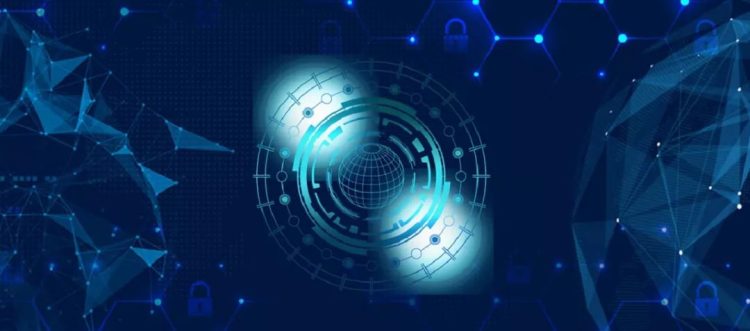In today’s hyperconnected world, data privacy has become a pressing concern. From social media platforms to financial services, users constantly generate sensitive personal information that can be misused, leaked, or stolen. Centralized systems—where one entity controls large volumes of user data—have proven vulnerable to cyberattacks, insider threats, and regulatory violations. In this landscape of growing distrust and escalating security breaches, blockchain technology presents a radically different model for data protection. Rather than storing user information in a single, centralized location, blockchain distributes data across a decentralized network, making it significantly more difficult for hackers to compromise the system. But how exactly does blockchain ensure privacy, and what mechanisms does it use to protect against malicious attacks?
At its core, blockchain is a distributed ledger where information is recorded in blocks and secured using cryptographic techniques. Each block is linked to the previous one, forming an immutable chain that is nearly impossible to alter without consensus from the majority of the network. This immutability is a powerful defense against data tampering, as it ensures that once data has been verified and added to the blockchain, it cannot be retroactively changed without detection. For malicious actors, this greatly raises the cost and complexity of trying to falsify or manipulate information—effectively deterring most forms of data forgery or unauthorized alteration.
One of the key ways blockchain enhances user privacy is through public-key cryptography. Each user is represented by a pair of cryptographic keys: a public key (used as an address) and a private key (used to authorize actions). This allows users to interact with the blockchain without revealing their real-world identity. For example, in a cryptocurrency transaction, the sender and receiver are known only by their wallet addresses. As a result, even though all transactions are publicly visible on the blockchain, they are pseudonymous—no personal data is stored or exposed unless the user chooses to reveal it. This model enables secure, verifiable interactions without sacrificing user privacy.
Beyond pseudonymity, more advanced techniques like zero-knowledge proofs (ZKPs) are pushing blockchain privacy even further. ZKPs allow one party to prove to another that a statement is true without revealing any specific information about the statement itself. In practical terms, this means a user could prove they are eligible for a service (e.g., over 18, a citizen, a registered voter) without disclosing their name, date of birth, or other sensitive data. ZKPs are already being deployed in privacy-focused blockchain networks like Zcash and are being explored for use in digital identity, healthcare, and financial systems.
To protect against malicious attacks, blockchain leverages consensus mechanisms that validate transactions and secure the network. In Proof-of-Work (PoW) systems like Bitcoin, miners must solve complex mathematical puzzles to add new blocks, making attacks like double-spending prohibitively expensive. In Proof-of-Stake (PoS) systems, validators must “stake” tokens as collateral, which they risk losing if they behave dishonestly. These mechanisms create economic incentives for good behavior and penalties for malicious actors, making large-scale attacks both difficult and costly.

Moreover, the decentralized nature of blockchain makes Distributed Denial-of-Service (DDoS) attacks far less effective. Unlike centralized servers that can be overwhelmed by malicious traffic, a blockchain network is maintained by thousands of nodes distributed globally. If one node is compromised or shut down, the others continue to operate normally, ensuring system resilience and availability. This redundancy not only protects against DDoS attacks but also enhances disaster recovery and fault tolerance.
Data integrity is further enhanced by hashing algorithms, which generate a unique digital fingerprint for each block of data. Even a tiny change in the input data results in a completely different hash, instantly signaling that tampering has occurred. This feature enables instant verification of data authenticity and prevents unauthorized modifications. Combined with timestamping and public auditability, hashing turns the blockchain into a secure, time-sequenced ledger of truth.
However, it’s important to note that blockchain alone is not a complete privacy solution. While it protects the data stored on-chain, off-chain interactions—such as when users access a blockchain platform through a website or mobile app—can still be vulnerable to traditional cybersecurity threats like phishing or malware. Therefore, a holistic approach to privacy must also include secure front-end systems, user education, and compliance with data protection regulations like GDPR.
In conclusion, blockchain offers a fundamentally more secure and privacy-preserving model for data management than traditional systems. Through decentralization, cryptographic security, consensus mechanisms, and advanced techniques like zero-knowledge proofs, it significantly reduces the risk of data breaches and malicious attacks. While not a silver bullet, blockchain represents a powerful tool in the ongoing fight to protect personal data and build digital systems that users can trust. As technology evolves, the integration of blockchain with privacy-enhancing protocols and responsible governance could reshape the digital landscape, giving individuals greater control over their information in a world where privacy is more essential than ever.













































